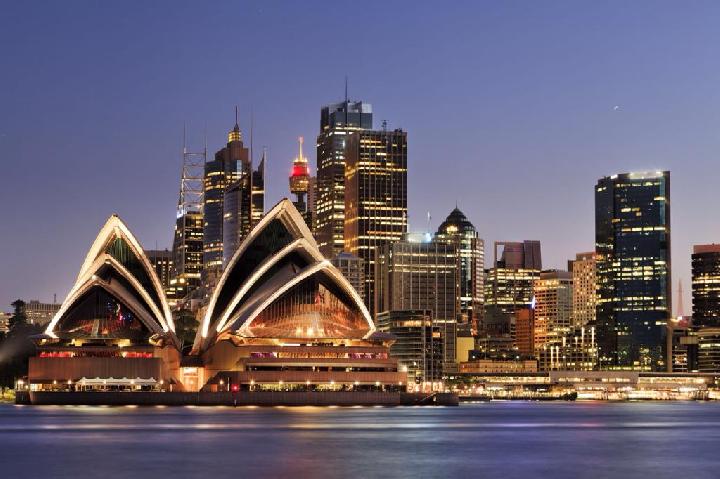China Set to Move in as Australian Banks Abandon Pacific
Translator
Editor
29 August 2024 14:07 WIB

By: Paresh Kumar Narayan - a researcher in the Monash Business School at Monash University in Melbourne.
Bendigo Bank, Westpac and ANZ are the latest three banks to begin their exit from the Pacific Islands. Here are the five key reasons why that's happening.
Australian banks are gradually withdrawing from the Pacific Islands, leaving the region at risk of being totally disconnected from the global banking system.
Bendigo Bank is exiting Nauru, while Westpac has floated leaving Fiji and Papua New Guinea. Fiji is also losing ANZ branches.
As Pacific Islands leaders meet in Tonga, finding a way to secure the region's financial future will be in focus.
There are five key reasons driving this banking exodus and it leaves a huge gap in the market that one country is primed to fill.
1. It's a small market
The small size of Pacific Islands countries inherently limits economies of scale, resulting in higher cost structures and thinner profit margins.
With low population and geographically small islands, there is a weaker business case to invest in the Pacific relative to more developed countries with densely concentrated populations.
The banking sector in these countries has struggled with profitability and performance.
Alongside that, the global decline in correspondent banking services — banks that provide services to another bank, often in another country — has exacerbated the challenges Pacific Islands countries face.
Between 2012 and 2018, the global correspondent banking network shrank by 20 percent in active relationships, according to the Bank for International Settlements.
This trend makes it harder to conduct sustainable banking in Pacific Islands countries, as there are fewer outside partners willing to help service institutions in the region.
2. People are leaving Pacific Islands countries
Since the COVID-19 pandemic, Pacific Islands countries have seen an increase in emigration of highly-skilled labour to countries such as Australia, New Zealand and the United States.
This exodus has led to a decline in the money supply and, consequently, a reduced demand for banking services.
While remittances have increased, particularly in larger Pacific Islands countries like Fiji and Papua New Guinea, the overall impact on the banking sector in smaller islands like Nauru and Tuvalu has been negative.
These smaller economies have seen reduced banking activity, further straining the sector.
3. Climate change is impacting the region
The increasing frequency and severity of climate-related disasters pose significant risks to the banking sector in Pacific Islands countries.
The two sectors most vulnerable to climate change — agriculture and tourism — are also the most reliant on bank financing.
For these industries, the absence of effective insurance models has heightened the risk profile for banks, making it difficult to lend to projects in these sectors. As a result, banks have struggled to maintain profitability and performance.
4. Market conditions are unprofitable
Political instability in some Pacific Islands countries — exemplified by frequent changes in governments in the Solomon Islands, Vanuatu and Papua New Guinea, as well as an uncertain political landscape in Fiji — creates a challenging environment for banking.
High regulatory and compliance costs add more strain, particularly those related to anti-money laundering and counter-terrorism financing.
Pacific Islands countries also often pose geographical challenges, such as rugged terrain and undeveloped infrastructure, which makes it harder and more expensive to deliver services, particularly to remote and rural areas.
5. The shift to digital banking
The rise of neobanks — banks that operate exclusively online with no physical branch — has shifted the strategic focus of traditional banks towards digital banking over a physical presence.
In markets like Pacific Islands countries, where physical branches are less profitable, banks may prefer investing in digital platforms. This shift reflects the broader trend of digitalisation in banking, which offers higher returns and lower operational costs.
An opportunity for China?
With the potential exit of Australian and New Zealand banks from Pacific Islands countries, China may seize upon this as a major opportunity to assert its influence over the region's banking sector.
China already has substantial development partnerships in the Pacific through its Belt and Road Initiative. With its economies of scale, technological capital and infrastructure, China is well-positioned to fill the gap left by struggling Western banks.
The Chinese state financial institution, the Bank of China, has signed a Memorandum of Understanding with Nauru to "explore solutions and options to its banking issues."
Unlike Western banks, which have traditionally approached Pacific Islands countries from a purely commercial perspective, China's model offers a blend of visibility, development progress and profitability.
This hybrid approach is a better fit for the specific set of challenges and opportunities provided by Pacific Islands countries, where a strict profit-driven strategy is less likely to succeed.
China's ability to integrate banking sector activities with broader economic initiatives, such as infrastructure development, gives it a strategic advantage.
It comes with precedent: China deployed a similar approach in Africa, rapidly expanding its trade and investment in the region by becoming one of the lead players in banking.
The withdrawal of Western banks from Pacific Islands countries creates a vacuum that China is well-equipped to fill.
By leveraging its technological prowess, economic partnerships and a more flexible approach to profitability, China has the potential to dominate the future of the banking sector in the Pacific Islands.
Originally published under Creative Commons by 360info™.
*) DISCLAIMER
Articles published in the “Your Views & Stories” section of en.tempo.co website are personal opinions written by third parties, and cannot be related or attributed to en.tempo.co’s official stance.























